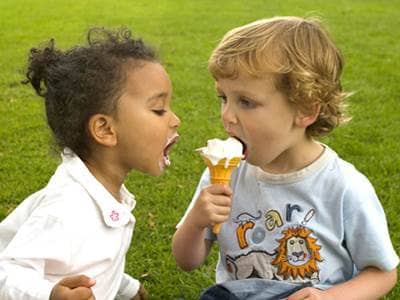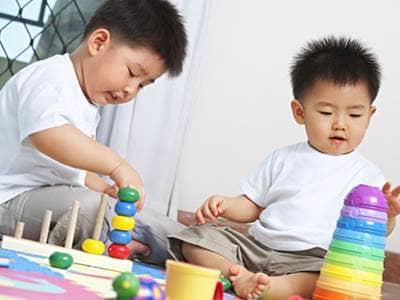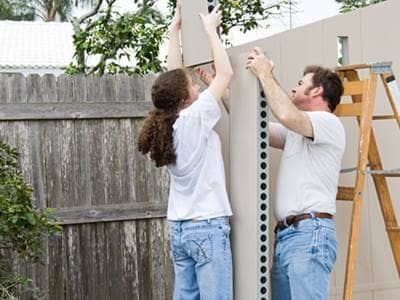
Generosity means giving or sharing freely the things that you value--whether material possessions, money, time, or love--in a positive spirit. A generous person gives without thought of reward and without strings attached--just for the joy of giving and making someone else feel good. Generosity is tied closely to empathy, since it involves thinking about what other people want or need. Of course, the holidays and birthdays are times we associate most with giving. But generous acts at any time have a ripple effect, making the world a kinder, happier place. Here’s how parents can instill a generous spirit in their children.
It Starts with Sharing

The ability to share is the cornerstone of generosity, but it doesn't come automatically. Babies are naturally focused on their own needs; during the first year they start to playfully hand objects to Mom and Dad, basking in their parents' pleased reactions. Sharing with friends is harder--since kids may feel diminished by giving away possessions and aren’t quite sure they’ll get their toys back. Start by pointing out examples of sharing--for instance, "Daddy shared his cookie with you." "Amy shared her toy with you! Wasn't that nice?"
Encourage Thoughtfulness

Before a playmate comes over, sit down with your child and talk about what would make the friend happy and comfortable. This gives kids the experience of considering another person's feelings and planning ways to be generous. Let your child be the one to pass out snacks. And when your child shares a toy, offer gentle praise, "Thanks for sharing with Robbie! It made him happy that you were generous."
Be a Role Model for Generosity

Children watch what you do and absorb the spirit in which you do it. When you act generously--brightening the day of an elderly neighbor, driving a sick friend to the doctor, fund-raising for a charity, or helping out despite the sacrifice involved--you teach children lessons about generosity that they will carry through life.
Create Holiday Giving Traditions

Holidays offer great opportunities to teach the joy of giving. Involve your child in deciding what gifts to give family and friends. Sit down and make a list together of what they think siblings, grandparents, and close friends might like, including a few things your kids can make or do, rather than buy. When you go shopping, let kids have money to give to sidewalk Santas. Start a hands-on family giving project, like baking holiday cookies and bringing them to neighbors.
On the holiday itself, let your children take turns handing out gifts to the family so they have the pleasure of seeing others' reactions. And make sure your kids learn how to offer a sincere "thank you" and a hug for their own gifts. Gratitude and generosity are closely connected.
Donate to a Good Cause

Find a cause that's meaningful for you and your children. Kids might be interested in a charity that provides medical care for other children, like Operation Smile, or a local pet rescue organization. Set aside a "giving jar," in which everyone puts spare change (kids can donate part of their allowance). When the jar is full, count the money with your children and write a check to the charity.
You might also have a "clean-out" day, in which your child picks out the toys, books, and clothes he or she no longer needs. Together, choose a local charity or hospital to receive the items. These are just a few of the many ways you can involve kids in giving.
Be Generous with Time and Caring

Show children that giving time or doing something helpful can be just as meaningful as giving material gifts. Bring them along when you spend time with an elderly relative or disabled friend. Ask them to think about what they could give that doesn’t involve money, such as making a drawing for Grandma or offering to rake leaves for a neighbor. Explain to kids that "presence"--giving time and attention--can be as welcome as presents.
Use Wisdom When Giving

Sometimes kids try to "buy" the friendship of popular kids—and end up being taken advantage of. Kids are usually able to work this out between them. But if you see your child's generosity being abused time after time (say, by doing a friend's homework or being expected to pay for everything), explain that there are limits to pleasing someone and that true friendship doesn't cross those boundaries. In other instances, help them recognize when they've taken on too much. They may need advice on figuring out how to apportion their resources and give within their means.
Do Service Projects

Help kids find opportunities to channel their idealism into generous behavior. When they're younger, volunteer as a family; as kids get older, encourage them to participate in service projects themselves, such as organizing clothing or food drives for local charities. Support them by donating goods or services when they ask you to. Children who volunteer early develop a habit of generosity that continues throughout life and benefits the entire community.